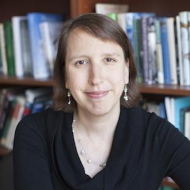As you probably know, NCSE released the first national survey on the teaching of climate change in public schools last week in Science. Why did we do this survey? Our executive director, Ann Reid, wrote yesterday in our blog:
“We had anecdotal evidence, and some good, but not national, survey data, suggesting that efforts to cast doubt on the overwhelming scientific evidence of climate change were seeping into science classrooms.”
The reality was, we just didn’t know. And that was a problem. Funders wanted to know how widespread the issues were. Audiences at presentations wanted to know how they could help teachers. We needed some salient evidence that there was a need for NCSE’s efforts.
What did the survey tell us? It told us that most teachers are covering climate change for at least an hour over the year. This is not only great news, it is way more than I had personally predicted. We also found that they are covering important topics central to climate change like the greenhouse effect and impacts like sea level rise. We also discovered that some teachers are covering it well, supporting the scientific consensus that climate change is primarily caused by human activity.
Unfortunately, that was not the whole story. As was pointed out in the Science article, there are many teachers who are giving their students “mixed messages”, adding false balance in the classroom as to whether humans or natural sources are causing climate change. Even those teachers who agreed that humans are causing climate change were unaware of the scientific consensus. This is troubling. To answer Ann’s question—is doubt on scientific evidence seeping into the classroom—our study says yes.
Now I know that many people are going to be quick to blame science teachers. Aren’t they supposed to be experts in everything all the time? Physicists qualified in quantum theory, ready to build nuclear reactors in their classroom, and also simultaneously microbiologists leading their students to develop the new cure for the Zika virus? All the while grading papers, responding to parents, managing classrooms, getting professional development…on a shoestring budget? Alas, they are teachers, not magicians, and I'd argue that these expectations are completely unfair.
What is the answer? We’ll be talking about that this week on our blog. The first job is connecting with educators, getting them desperately needed resources and support, and connecting them closely to their local scientific community to gain support for these tricky topics. Our survey showed us and the world, that we have a hard challenge ahead. But now that we know the problems we face, we can make plans on how to fix them. NCSE is devoted to supporting teachers on climate change education—will you, too?

